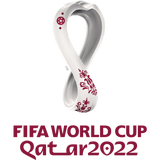
Where Europe meets Asia, Kazan offers rich diversity
KAZAN, Russia (AP) Fans visiting the exotic city of Kazan for next year's World Cup will get to experience a little bit of everything: rich history, diverse culture, magnificent buildings - and even a beach.
The traditionally Muslim city located in central Russia, some 800 kilometers (500 miles) east of Moscow, not far from where Europe meets Asia, lies on the banks of the Volga and Kazanka rivers, where a beautiful water line offers summer-time attractions that include the beach and even a water park.
Some of the most famous sights of the capital of the Tatarstan region are linked to its rich diversity and extraordinary mix of eastern and western cultures, features that give visitors a chance to see a unique side to Russia.
The highlights of the city are the religious buildings inside the ancient white walls of its 16th century kremlin, or citadel, one of UNESCO's world heritage sites.
The imposing Qolsharif Mosque, which highlights the Kazan skyline with its bright blue domes, stands only a few meters from the Orthodox Annunciation Cathedral. The Mosque is a 1990s reconstruction - part of post-Soviet cultural revival - of one destroyed by Ivan the Terrible in 1552.
Also nearby is the leaning Tower of Suyumbike, named in honor of a former Tatar princess following the historic siege by Ivan.
Kazan, which means ''cauldron,'' is one of the oldest cities in Russia, having celebrated its millennium in 2005. With about 1.2 million people, it is considered the country's third capital after Moscow and St. Petersburg.
It has a majority of Muslim residents and is a symbol of peaceful coexistence among different religious groups and citizens of more than 100 nationalities. There are many Mosques around the city, but headscarves are rare and many Tatars are not rigid followers of the religion.
The Tatars, who were conquered by the Mongols, are in many ways culturally and linguistically linked to Turkey. They proudly maintain their rich traditions, and Tatar remains an official language that continues to be taught in schools.
''This is what is so nice about Kazan,'' said Adel Gataullin, a 37-year-old resident who is Tatar and Muslim. ''We all get along with each other very well. And that's the way it should be. Here we have people from all different places and different religions and that has never been a problem to anybody. We have mixed families everywhere and that is completely normal.''
The progressive city is home to 30 of Russia's largest universities, hosting an estimated 180,000 students. The country's first Islamic university is said to have been founded in Kazan. The city is also home to Kazan State University, one of the oldest in Russia and where novelist Leo Tolstoy and Vladimir Lenin studied.
The kremlin is just a short walk away from the lively Bauman Street, which is filled with tourists and students along its many bars, restaurants, nightclubs and souvenir shops. It's in Bauman Street where there is the bronze sculpture of a large cat which visitors can pet to attract wealth, according to local legend.
Bronze sculptures of the Zilant, the snake-like dragon which is Kazan's symbol, can also be found across the city.
Anywhere across town, visitors can also find the traditional Tatar sweet called chak-chak, a dough pastry deep fried in oil and drenched in hot honey.
The 45,000-capacity Kazan Arena, home to local club Rubin Kazan, is nearby. A new park is expected to be built close to the stadium in time for next year's World Cup, and it is expected to accommodate what local officials say is one off the longest benches in the world with an extension of nearly 2 kilometers (1.2 miles).
But perhaps the greatest attraction for fans coming for the World Cup will be the friendly and diverse people of Kazan. ''It's who we are,'' said 23-year-old student Elvina Valeeva. ''We are used to diversity and we enjoy having so many people from so many different places here with us.''
---
AP Sports Writer James Ellingworth contributed to this report from Moscow.
---
Tales Azzoni on Twitter: http://twitter.com/tazzoni
